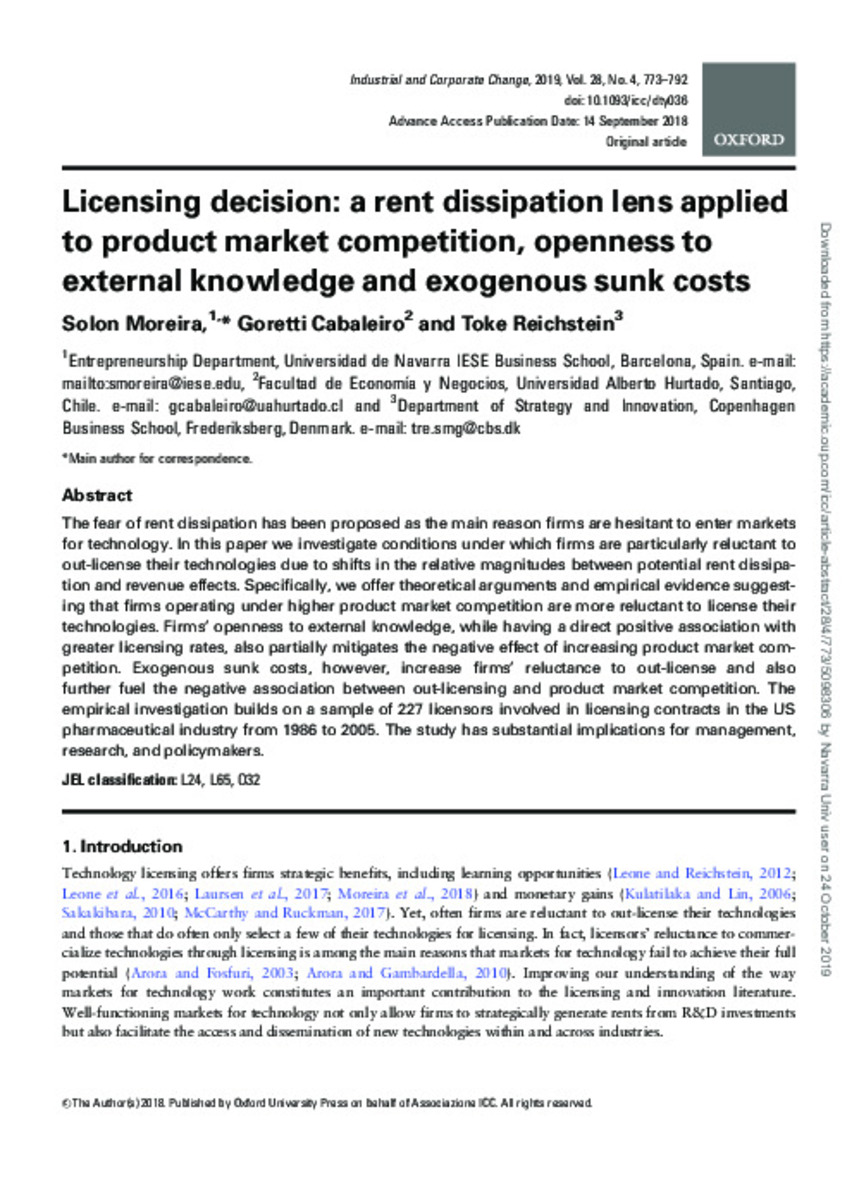Licensing decision: a rent dissipation lens applied to product market competition, openness to external knowledge and exogenous sunk costs
Palabras clave :
Rent dissipation
Markets
Materias Investigacion::Economía y Empresa
Materias Investigacion::Economía y Empresa::Economía
Fecha de publicación :
2018
Cita:
Moreira, S. (Solon); Cabaleiro-Cerviño, G. (Goretti); Reichstein, T. (Toke). "Licensing decision: a rent dissipation lens applied to product market competition, openness to external knowledge and exogenous sunk costs". Industrial and Corporate Change. 28 (4), 2018, 773 - 792
Aparece en las colecciones:
Estadísticas e impacto
0 citas en

0 citas en

Los ítems de Dadun están protegidos por copyright, con todos los derechos reservados, a menos que se indique lo contrario.







